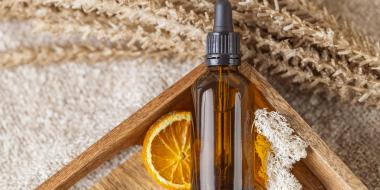Bakuchiol is the buzzy new skincare ingredient popping up in night creams, serums and oils. You may have even heard it described as a “natural retinol” or a “retinol alternative.” What does that mean? And is it effective? Here’s what you need to know.
What is bakuchiol?
Bakuchiol is a phytochemical that has demonstrated anti-aging effects when used topically. An extract that comes from a plant called Psoralea corylifolia, bakuchiol has been used for years in traditional Chinese medicine but only recently made its debut in the beauty world. This powerful plant extract has been shown to be a potent antioxidant with anti-inflammatory and antibacterial benefits.
What’s especially exciting is bakuchiol’s potential to function in a way similar to topical retinoids.
What are retinoids?
Retinoids have been used for years in the skincare world for their efficacy in regulating epithelial skin growth. They are commonly used to help in the treatment of acne, as well as in anti-aging skincare by helping diminish the appearance of fine lines and sun damage. Retinoid creams are actually a form of topical vitamin A and have been studied to show increases in production of collagen, production of new blood vessels and function by speeding up the turnover of superficial skin cells. Think of it like growing fresh skin at a faster rate! Typically, retinoids are available by prescription only, while the skincare products available on drugstore shelves contain retinol, a specific form of retinoid that isn’t as strong as prescription-only retinoids.
However, both retinoids and retinol come with side effects such as skin dryness and irritation. They also increase the skin’s sensitivity to sunlight, so skipping the sunscreen while using retinoids will almost surely result in a sunburn.
For those with sensitive skin, bakuchiol may be the answer. Researchers have just begun studying this “more gentle” cousin of the beloved, yet harsh retinol.
Why bakuchiol is being compared to retinol
Now, when we look at the chemical structure of bakuchiol, it has no resemblance of a retinol molecule, however, the way it functions is extraordinarily similar.
A study that compared the two compounds in equivalent dosing, revealed that they both decreased wrinkle surface area and hyperpigmentation and found no statistical difference between the compounds. However, study participants did experience one major difference: Those in the study that used retinol, experienced more facial stinging sensations and peeling than those who used bakuchiol.
So why say “yes” to bakuchiol?
Though more research needs to be done, bakuchiol seems to be a much more gentle alternative to traditional retinols with similar function. Plus, bakuchiol is not derived from animals. Plant-based skincare for the win!
Looking to add to your skincare regimen? Be sure to check out our recommendations for plant-based serums.






